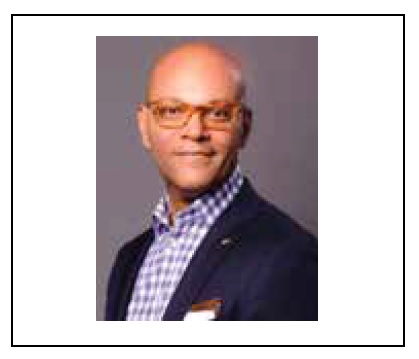
By Derek Barnes–
In mid-July, an article I read in The Washing Post, “A Racial Reckoning at Nonprofits” by Sydney Trent, confirmed a severe problem that few are aware of in the nonprofit space. I found the article illuminating and tough to read because it hit multiple areas where nonprofits must do better. I circulated the piece to a variety of friends and colleagues. A wide range of responses ensued.
The mention of Black women in the headline stopped some readers from reading further, but pulled other readers more into the article’s content. A few people just “skimmed” the article. The core premise of the piece is that the experiences and skills of Black women (and men) in nonprofits are undervalued and taken for granted. Achievements are largely under-acknowledged and lead to a lack of advancement to senior roles and significant pay inequities—often enabled by white women in leadership roles. As one friend indicated as she recalled working in a management position for a white female CEO: “The racially motivated stonewalling and ostracism cited by the women in the article are so familiar to me and brought back painful memories.”
It shouldn’t be a surprise that many nonprofits can miss opportunities to evolve. Their boards and senior leadership suffer from the same blind spots, attitudes, and biases within hierarchically established public and corporate structures. In response to public unrest last year centered around social injustice, many more organizations have chosen to embark on diversity, inclusion, belonging, and equity (DIBE) programs to reconcile past injustices that continue to show up in our interactions and systems today.
People thrust into the DIBE work of understanding, reconciliation, and repair find out how much they didn’t know and feel overwhelmed—connecting the past’s impact on the present and future if not corrected. Those who have elected to do the work are shocked to learn how pervasive racism and social injustice really are in America, even under the guise of philanthropy and altruistic endeavors. Like fructose corn syrup, it’s in almost everything, as Trevor Noah once pronounced.
Current research confirms the inequitable distribution of nonprofit funding and resources. The underinvestment in underserved BIPOC communities is also well documented. Funding direct service organizations should be charitably targeted for triage and strategically directed to resolve what creates the conditions of poverty, wealth inequality, homelessness, inferior education, mass incarceration, and poor health in the first place. Properly conceived and administered, philanthropy can be the great equalizer to conditions that ill-conceived legislation and rampant forms of capitalism can create.
I’m encouraged by the moves that Bay Area organizations like Homebridge are making—the addition of the Chief External Affairs Officer alongside their female CFO, both of African descent. Horizons Foundation elected to make social justice and DIBE a strategic imperative. Horizons’ Board of Directors realized the work isn’t about checking boxes, making fancy marketing statements, or token hiring.
To advance beyond the usual performative activities and gestures, we need people at the table in leadership roles making day-to-day decisions who can properly interrogate structural systems of exclusion with levels of empathy, compassion, experience, and insight for the proper problem and impact analysis. They must be courageous leaders as well—speaking out, taking risks, and making unconventional decisions.
The LGBTQ+ community must demand more from its Bay Area nonprofit and philanthropic organizations. As The Washington Post article suggests, we should call out “snowcap” organizations and avoid falling into the “do-gooder syndrome” trap, meaning we can’t be doing anything wrong because of all the good we do. It’s in our community’s best interest to keep challenging nonprofits and philanthropic groups to think differently, embrace racial equity/justice change, and do more to increase representation at the senior leadership and board levels within organizations where we direct our dollars.
Derek Barnes is CEO of East Bay Rental Housing Association ( www.EBRHA.com ). He currently serves on the boards of Horizons Foundation and Homebridge CA. Follow him on Twitter @DerekBarnesSF or on Instagram at DerekBarnes.SF
Published on August 12, 2021









Recent Comments